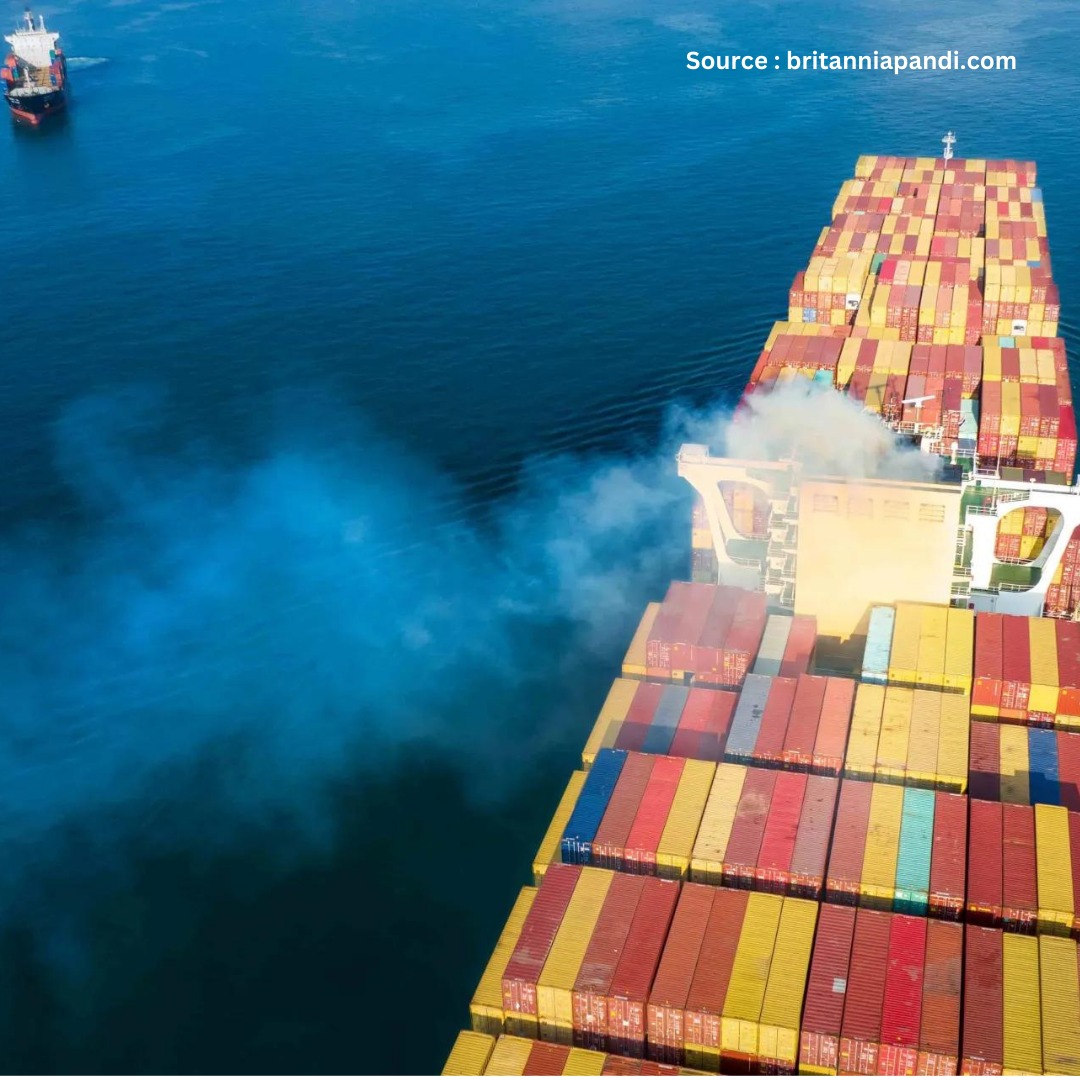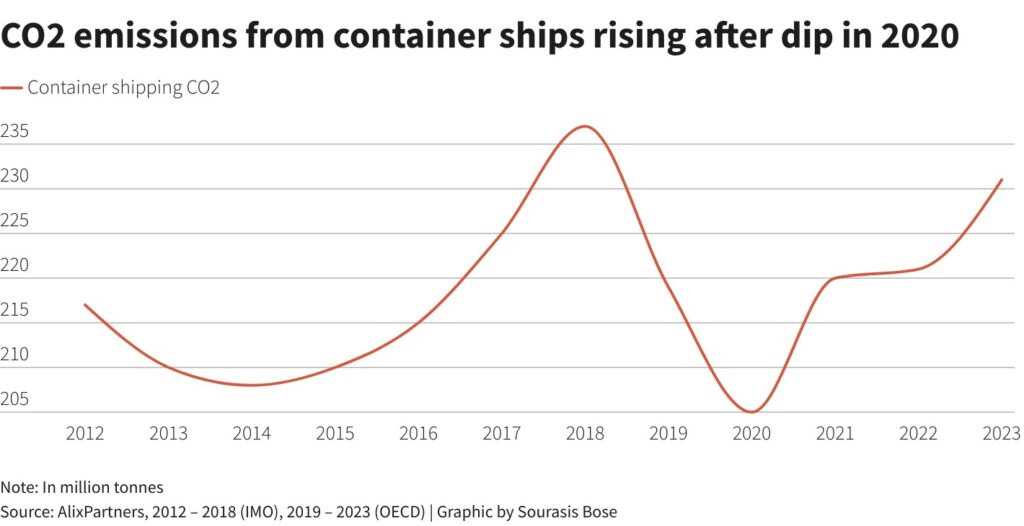The Red Sea problem requires operators to utilize more cargo ships, which raises emissions worries.

14th April 2024
Report: Emission worries because of Red Sea problem
The shipping industry’s pledge to curb its environmental impact faces a significant hurdle due to the ongoing crisis in the Red Sea.
Attacks by Iranian-backed Houthi militants have forced shipping companies to reroute vessels, leading to longer journeys and a surge in the number of container ships needed to maintain vital trade links between Asia and Europe. This, in turn, is causing a worrisome rise in carbon dioxide (CO2) emissions.
“The extended travel times necessitate adding at least two more ships to maintain weekly Asia-Europe services per operator,” explains Yiannis Parganas, head of shipbroker Intermodal’s research department. This increased reliance on multiple vessels translates to a significant rise in total emissions from the shipping fleet, even for the same amount of cargo being transported.
The impact is stark. The longer routes require more fuel, with estimates suggesting a 42% increase in emissions per ship for a standard Asia-North Europe service. This comes at a time when the industry was striving to meet the International Maritime Organization’s (IMO) target of a 20% reduction in emissions by 2030.
The situation is further compounded by the pre-pandemic levels of CO2 emissions witnessed in 2023, which reached 231 million tons. This follows a dip in 2020 due to pandemic-related slowdowns. A graph depicting this trend would clearly show the concerning rebound and the potential for further escalation due to the Red Sea crisis.

However, there’s another layer to this issue. Soaring freight rates, a consequence of the disrupted trade routes, have created a financial windfall for shipping companies. This has led some operators to postpone plans for replacing their aging fleets with newer, more fuel-efficient vessels.
“The numbers (freight rates) are very healthy and those who intend to scrap their ship have deferred their decision,” says Symeon Pariaros, chief administrative officer of ship-owner Euroseas. While this might be positive for companies in the short term, it poses a long-term threat to the environment.
In conclusion, the Red Sea crisis presents a complex challenge for the shipping industry. Balancing the need for smooth trade with environmental responsibility is proving difficult.
The increased use of container ships and the delay in adopting cleaner technologies threaten to derail progress towards emission reduction targets. Unless a solution is found to ensure safe passage through the Red Sea, the industry’s commitment to a greener future might be left adrift.
Click here to join our Telegram chanel
You will get information, news, and support related to Merchant Navy.
